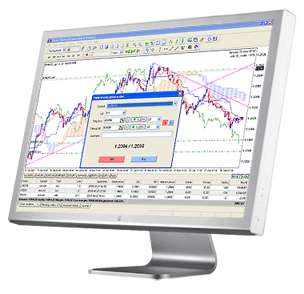Timing The Market
Having The Best Timing
Thursday, December 11, 2008 at Thursday, December 11, 2008 Posted by Alice
Labels: Stock Investing 2 comments
Sunday, December 7, 2008 at Sunday, December 07, 2008 Posted by Alice
Have you ever wondered what exactly is up with Stock Investing? This informative report can give you an insight into everything you've ever wanted to know about Stock Investing.
Since the creation of the internet, investors can now trade from anywhere in the country through their computer. This has resulted in the growth of the stock market. As well as that, any kind of investor can now participate in the stock market.There are many rules when it comes to the stock market. New investors should be aware of them before they start to trade. Keeping up to date with each of the stock available is absolutely necessary. This is because the market is changing by the minute, and any of these big or small changes can have an adverse effect on the stock market. By keeping up the current events of the world, well versed investors can at times pre judge when and where these events can effect the stock prices, and how. This gives them a great advantage over other investors.
Each investor approaches the stock market differently. It depends on many different issues. Such as their time constraints, experience, knowledge, wants and needs and their level of profitability. There are three different common ways investors can approach the stock market. They are position trading, swing trading and day trading. Each of these approaches are different in their own way.
Position trading refers to investors who do it as a side-job. They tend to have less time to invest into the stock market. Position trading involves the two aspects of analysis, technical and fundamental. To be able to be a position trader, they have to be well versed in both. As well as the analysis, they are up to date on current news. The combination of these three aspects adds up to what they hope is a long-term plan towards trading shares on the stock market.
If you don't have accurate details regarding Stock Investing, then you might make a bad choice on the subject. Don't let that happen: keep reading.
Swing trading is similar to position trading. However, swing traders focus on one type of industry. They focus all their efforts on this one industry, that in the end most swing traders can calculate correctly the outcomes of the shares in that industry. Like position trading, swing traders also focus on fundamental and technical analysis. It allows them a lot of free time as well, so most swing traders do this as a second job.
Lastly, there is day trading. Day trading is extremely different than swing trading or position trading. Day traders take this as their full-time job. They focus on the stock market all day, during the trading hours. They tend to make more then one buy/sell of shares in a day, this allows them to reduce holding any shares for a long time. Day traders purely focus on the technical analysis side of the shares. Fundamental analysis is of no use to them, because they trade on a daily basis.
Position trading, swing trading and day trading have their benefits. Deciding which to pick is up to the trader and their wants and needs. In the end, which ever is chosen, the investor shall be happy they participated in the stock market. This article has explained the differences between the three trading styles and the benefits of them.
That's the latest from the Stock Investing authorities. Once you're familiar with these ideas, you'll be ready to move to the next level.
Labels: Stock Investing 0 comments

Minyx v2.0 template es un theme creado por Spiga. | Minyx Blogger Template distributed by eBlog Templates